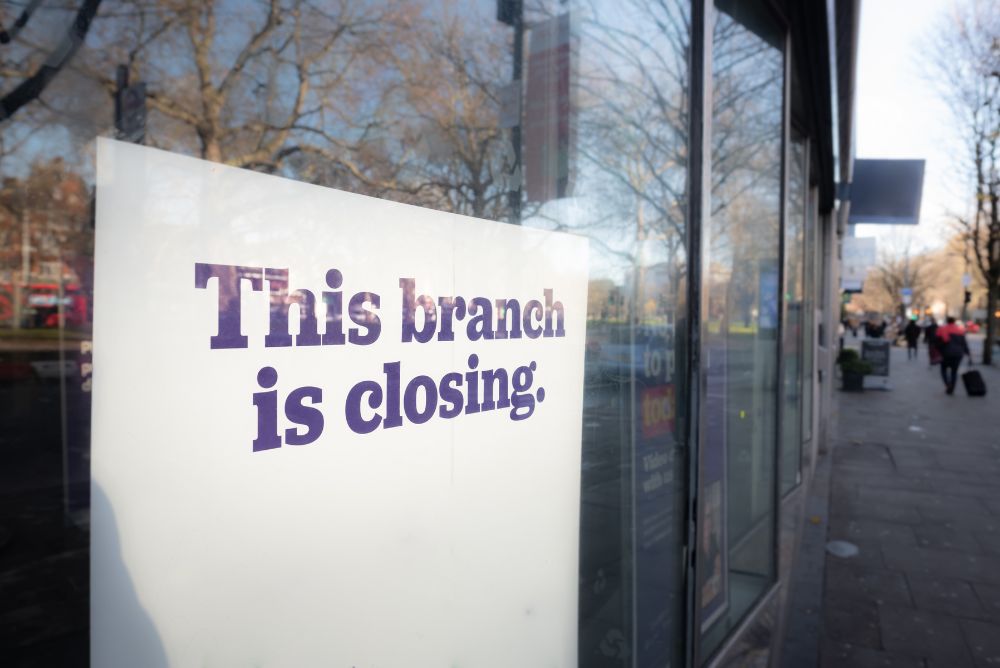Have you made a New Year’s resolution? Well, whether you have or not, we think there’s a change that needs to happen. We think it’s high time everyone started getting better customer service.
With customer dissatisfaction at an all time high in this country, enough is enough. People should be expecting, if not, demanding, better service from providers in 2025. It’s clear that many companies need to take feedback seriously, and improve how customers interact with them. Bots and AI just aren’t cutting the mustard.
Where have things gone wrong?
The decline in customer service standards didn’t happen overnight. It’s the result of several intersecting challenges.
Covid-19 was a real catalyst, with staffing shortages, supply chain issues, and a sudden switch to remote working all negatively impacting customer service. But that was four years ago, nearly five – to blame the pandemic in 2025 feels like a tired excuse.
We’re now in a situation where the UK high street is under threat, with more retailers folding or simply opting to close branches. Banks are the biggest offenders of this – since 2012, nearly 6,000 bank branches have closed. Those that are shutting branches say that they’re evolving with customer’s habits, needs, and technological improvements.
But then why are complaints about the banking sector the highest they’ve been for more than a decade?

Concerns about current accounts, credit cards and fraud and scam have driven a significant increase in these complaints. In fact, the Financial Ombudsman Service is investigating more fraud and scam complaints than ever before. In the last financial year (2023/24), consumers raised 80,137 cases with the FOS about banking and payment products, 23% more than the previous year.
27.3 million hours wasted!
According to estimates by Which?, energy customers spent an average of 112 minutes dealing with customer service problems, while broadband customers lost around 98 minutes.
Altogether, this added up to an astonishing 27.3 million hours wasted by energy and broadband consumers alone last year — split between 13.9 million hours for energy customers and 13.4 million hours for broadband users. So what’s causing this colossal catastrophe?
Chatbots top people’s complaints
AI and chatbots simply can’t replicate human connection. Consumers are crying out that they want to speak to a real person, who can empathise with their situation while also being helpful.
Instant messaging, or a chatbot, is designed to direct consumers to a stock answer and filter out easily solvable questions, in theory. However, chatbots often leave us with an unhelpful response, or going around in circles, only to be greeted with ‘please call us’, and then the queuing begins all over again. And by this time, you’re even more frazzled.

Just the process of trying to speak to a human being by calling a company can be equally as irritating. There’s nothing more infuriating than a pre-recorded message robotically “thanking you for your patience”, while you seethe, impatiently.
Here at Howden, we believe that waiting on hold makes customers feel like they aren’t a priority. In an increasingly frenetic world, time is precious.
And don’t get us started on how everything nowadays seems to have a baffling journey from start to finish. From creating an account, to scanning a QR code, downloading a new app, to entering your personal details over and over again… why can’t everything be stripped back and simplified, so that everything you need to see is in one place? Now there’s an idea.
How bad is the problem?
The consequences of poor customer service extend beyond lost time. It significantly affects emotional well-being, with 55% of energy customers feeling frustrated, 25% experiencing anger, and 21% feeling helpless.
It comes as no surprise that a staggering 67% of UK consumers say they are less loyal to brands now than they were two years ago, compared to 58% last year.
With record level of dissatisfaction in customer service, it’s more important than ever that companies do whatever they can to invest in customer service that’s not just up to scratch but actually goes beyond consumers’ expectations.
What should companies do to fix it?
“Make it easier to contact the right person to help me” topped the feedback in the UK’s Customer Satisfaction Index Report. And using the word ‘person’ nicely sums up the situation.
It’s clear that companies need to incorporate customer insights into their long-term strategy, to prioritise customer service. Interestingly, 31% of customers said they prefer excellent customer service, even if it costs more. They also value prompt response times (93%) and feeling understood and cared for their personal situation and needs (56%).
Take back control
Before you sign up to a company, look at its Trustpilot scores, and review what customers say about their service. Notice whether reviewers report that they’ve been able to speak to a real person, or get issues resolved quickly. Want to see a good example of this? Why not take a look at ours.
At Howden, we always strive to exceed expectations, and we want that ethos to roll out across the UK as we all deserve that little bit extra. Whether it’s stepping up to support during a claim, or welcoming you in branch with a cup of tea before helping you sort your cover, or even helping you in a crisis if your cover isn’t even with us – we pride ourselves on going that extra mile for you.
So, why not pop into your local branch or give the team a call? Find your nearest branch here!
Sources: ServiceNow, Which? Complaining Cow, UK Customer Satisfaction Index
This is a marketing blog by Howden.

